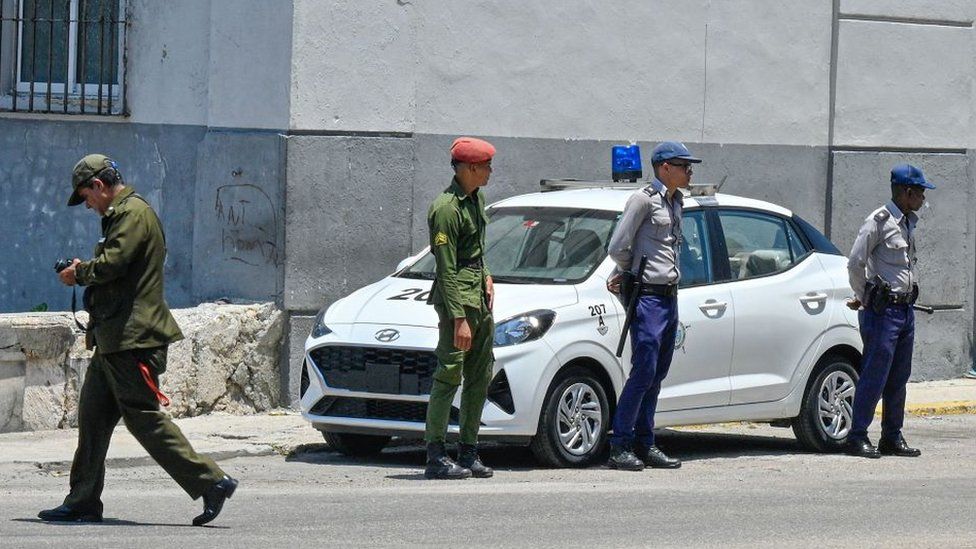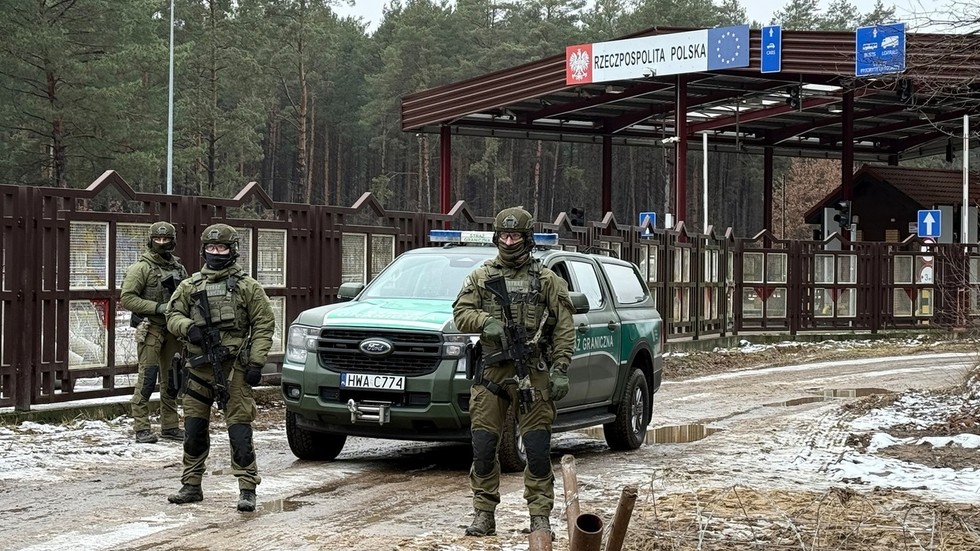 Image source, Getty Images
Image source, Getty Images
Police were out in force on the second anniversary of large anti-government protests
By Vanessa Buschschlüter
BBC News
The US government has condemned a Cuban court's decision to hand down lengthy sentences to a group of protesters as "repression".
Thirteen protesters were found guilty of crimes including sedition and sabotage earlier this year after they took to the streets in August 2022 to vent their anger at lengthy power cuts.
They were sentenced last week to jail terms of up to 15 years.
Unauthorised public gatherings are illegal in Cuba and protests are rare.
But the dire state of the Cuban economy, which has led to food, fuel and medicine shortages as well as power cuts, has angered some so much they have been willing to defy the rules governing public gatherings.
In July 2021, thousands of disaffected Cubans formed the largest protests to be held on the Communist-run island for decades. More than 1,000 were arrested and handed jail sentences.
The economy has been spiralling downwards even further since, with the government for the first time asking the United Nations food programme for help to alleviate shortages.
The group of protesters sentenced last week had taken to the streets in Nuevitas in August 2022 after their small town experienced lengthy power cuts.
The majority of their sentences ranged between 10 and 15 years, Reuters news agency reported citing a sentencing document.
An American official, Brian Nichols, called the severity of their punishment "outrageous".
"The Cuban government's continued repression of Cubans striving to fulfil their basic rights and needs is unconscionable," Mr Nichols, US Assistant Secretary for Western Hemisphere Affairs, wrote on X, formerly Twitter.
While the Cuban government has not yet responded directly to Mr Nichol's tweets, Cuba's official newspaper, Granma, has in recent weeks accused the US of planning to trigger "a social explosion" on the anniversary of the July 2021 protests.
The Cuban government has long blamed US sanctions for its economic problems, and state-controlled media has warned of alleged attempts by the US government to "make the most of Cuba's complex economic situation" to create unrest on its streets.

 10 months ago
56
10 months ago
56








